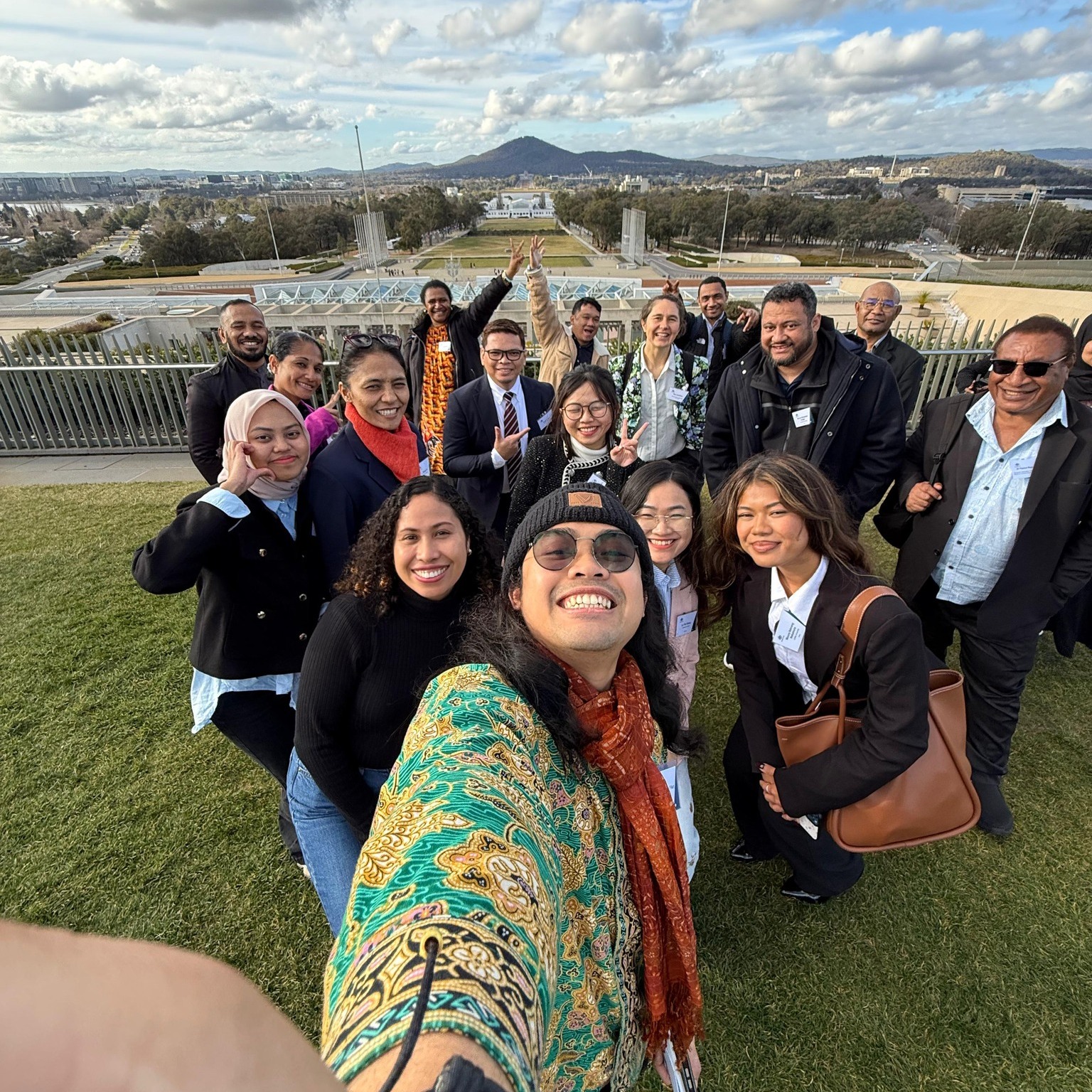Salohy Andrianantoandro, an Australia Awards scholar pursuing a Master of Environmental Science at the University of South Australia, recently participated in DFAT’s Facing Forward: Innovations and Challenges in Global Health event held in Canberra on 4 and 5 August 2025.
She was among 60 scholars selected to attend the event, which brought together emerging leaders from diverse professional backgrounds at the ANU National Centre for Epidemiology and Population Health. The gathering provided a platform for exchanging ideas and exploring innovative approaches to global health challenges.
“I had the opportunity to build valuable networks with fellow scholars from various countries and professions – including public health workers, laboratory technicians, climate change officers, and general practitioners. We were all united by a shared commitment to development and strengthening health systems in our home countries,” Salohy shared.
As an Environmental Science student, Salohy was particularly keen to highlight the critical role of environmental health in global health discussions. She emphasised the importance of addressing zoonotic diseases and climate-related health risks. “The One Health approach – which integrates human, animal, and environmental health – is more relevant than ever,” she noted.
The event began with a powerful Welcome to Ngambri-Ngunnawal Country by Paul Girrawah House, followed by a visit to Parliament House. Scholars engaged in a dynamic health protection exercise focused on pandemic preparedness and heard from Australia’s Chief Medical Officer, Professor Michael Kidd AO, who shared insights on future health system challenges. Sessions also explored equity in public health responses, global health trends, and the One Health framework.
Salohy actively participated in a group simulation on pandemic response, where her team represented the Public Health Workforce. They examined the roles and training needed for effective emergency response.
“This exercise was incredibly insightful. It underscored the importance of proactive planning and interdisciplinary collaboration. We brought together perspectives from communication experts, health professionals, environmental scientists, and policy makers,” she said.
She highlighted that effective pandemic response requires more than just trained personnel – it demands robust communication systems, environmental monitoring, and supportive policies to ensure coordinated action and resource allocation.
The program also included lighter moments, such as a spirited trivia round and a networking lunch with DFAT and ANU representatives, fostering regional partnerships and shared learning. Scholars explored how collaboration and knowledge exchange can drive meaningful change, enhance regional health security, and promote sustainable public health outcomes.
Salohy’s participation directly supports her Reintegration Action Plan (RAP), particularly in expanding professional networks, advocating for community issues, and implementing bottom-up communication strategies. “The insights and connections gained from this event will be instrumental in shaping my RAP and driving meaningful change in my community,” she concluded.
Photographs: Australia Awards Facebook



Connect with us
Any questions?
If you cannot find the answer on our FAQs page, feel free to get in touch by emailing .